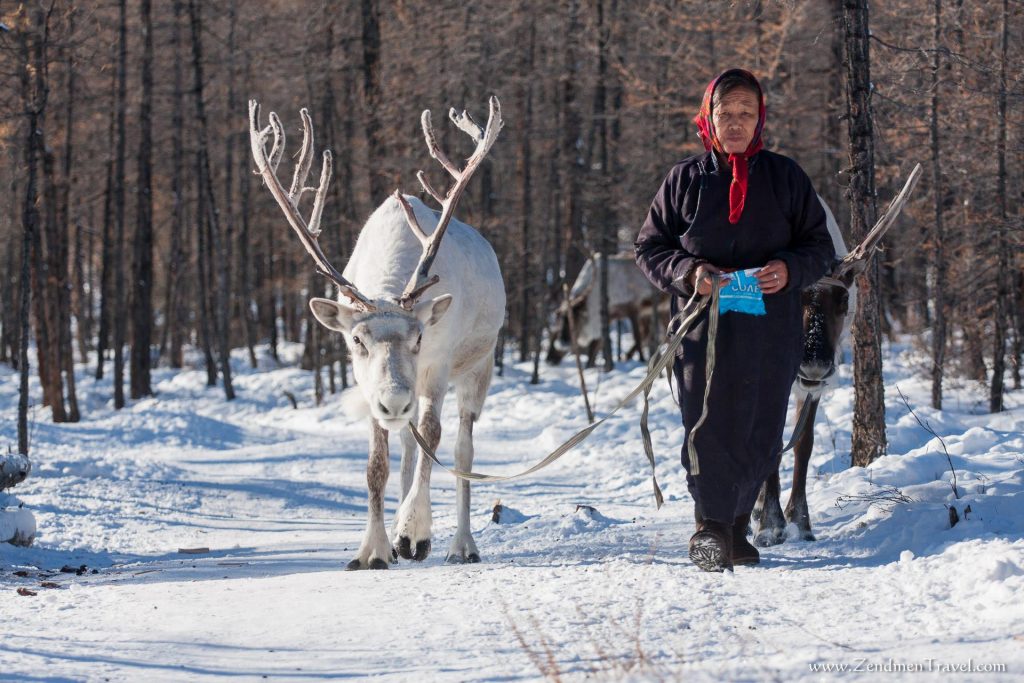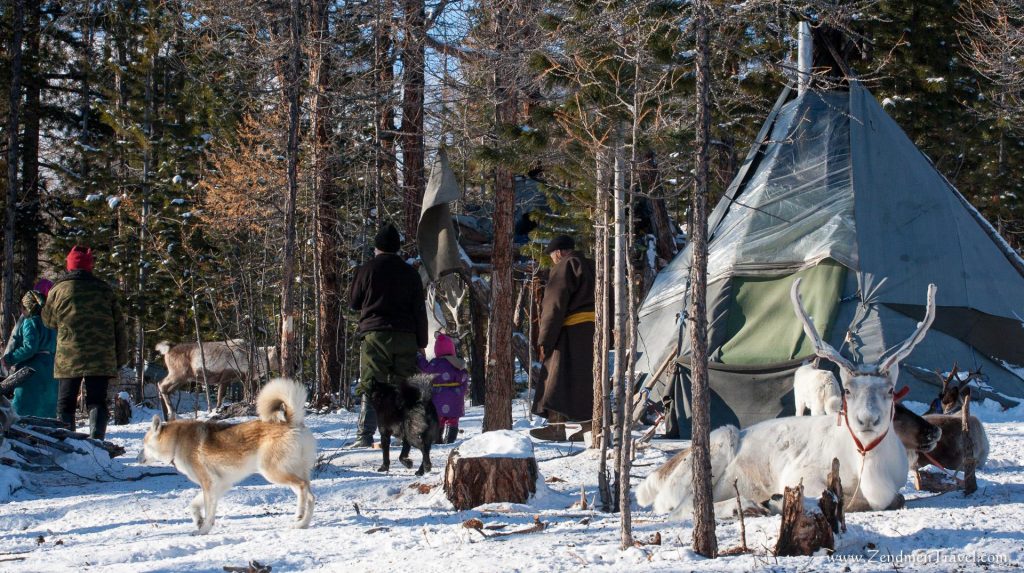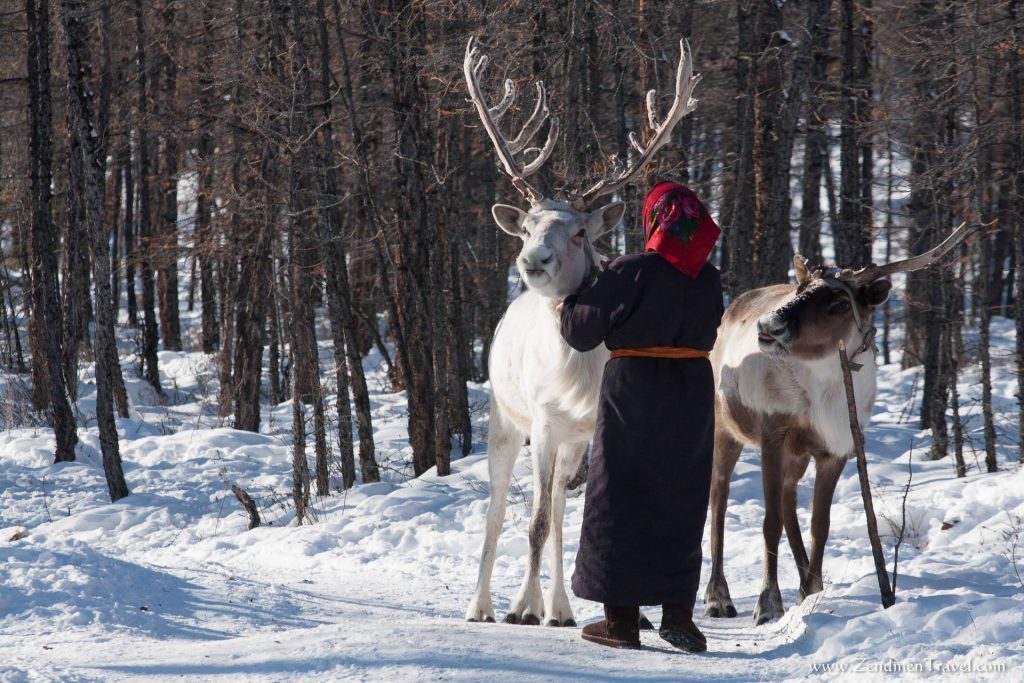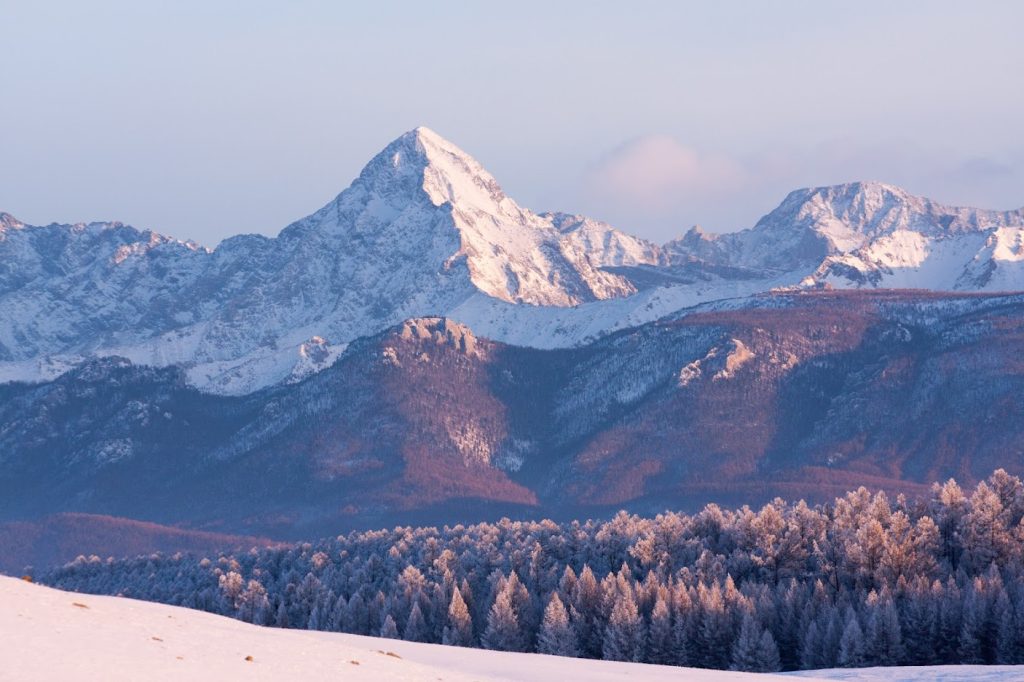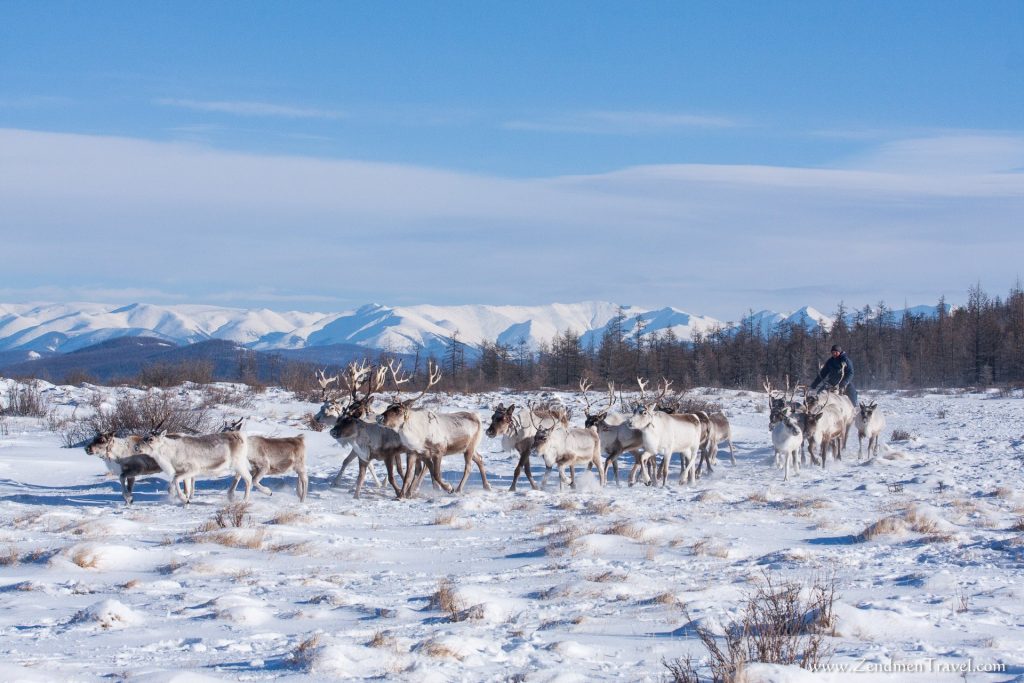
The Tsaatan, also known as the Dukha, are a small nomadic community residing in the northernmost regions of Mongolia, near the border with Russia. They are renowned for their traditional reindeer herding lifestyle and deep connection with nature.
Here’s some more information about these fascinating nomadic communities:
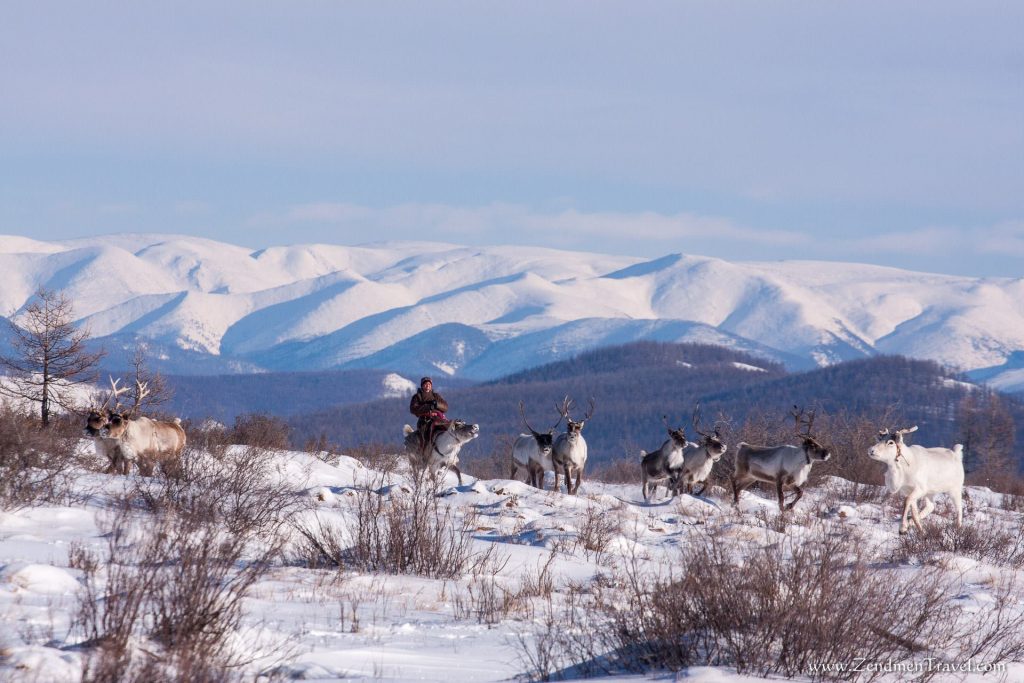
Lifestyle: The Tsaatan people have a nomadic lifestyle, moving their camps multiple times a year in search of suitable grazing grounds for their reindeer. They reside in the northernmost regions of Mongolia, primarily in the Khuvsgul Province near the border with Russia.
|
1
1
Housing: The Tsaatan live in traditional teepee-like structures called “Urtz.” These dwellings are made by assembling wooden poles and covering them with felt or reindeer hides. Urtz is designed to be portable, allowing the Tsaatan to move their homes along with their herds.
|
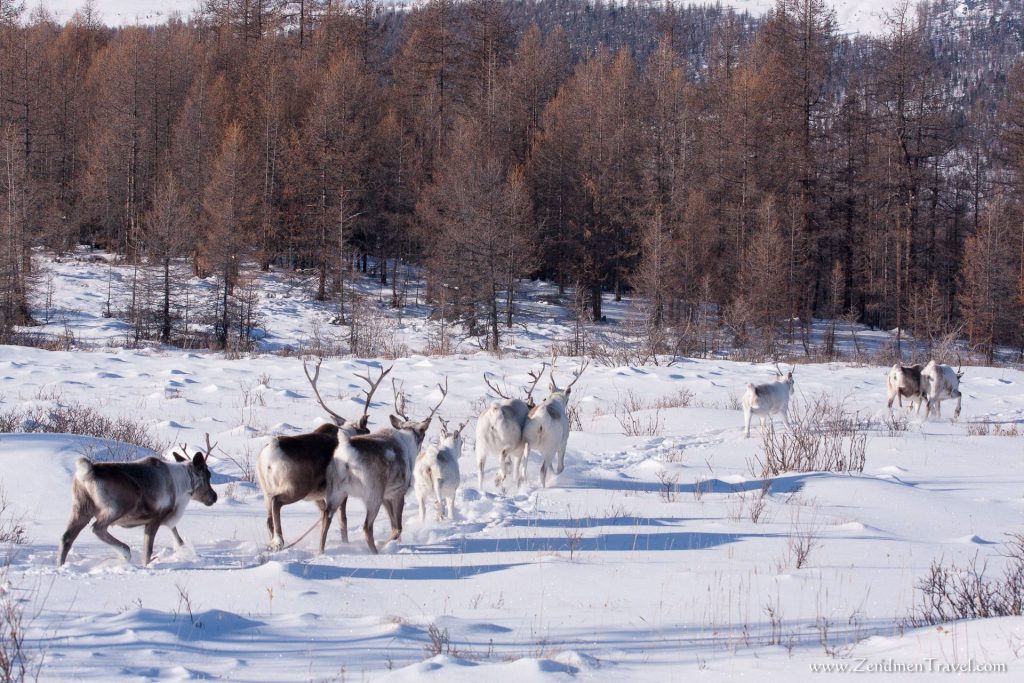
Reindeer Herding: Reindeer herding is the primary occupation of the Tsaatan people. They have a deep bond with their reindeer and rely on them for various aspects of their daily lives. The reindeer provide transportation, milk, and fur for clothing and shelter.
|
|
|
Clothing and Crafts: The Tsaatan people create their traditional clothing and handicrafts using materials obtained from their reindeer and the surrounding environment. They make clothing items, such as coats and boots, from reindeer hide, and they use antlers and bones to craft tools and decorative items.
|
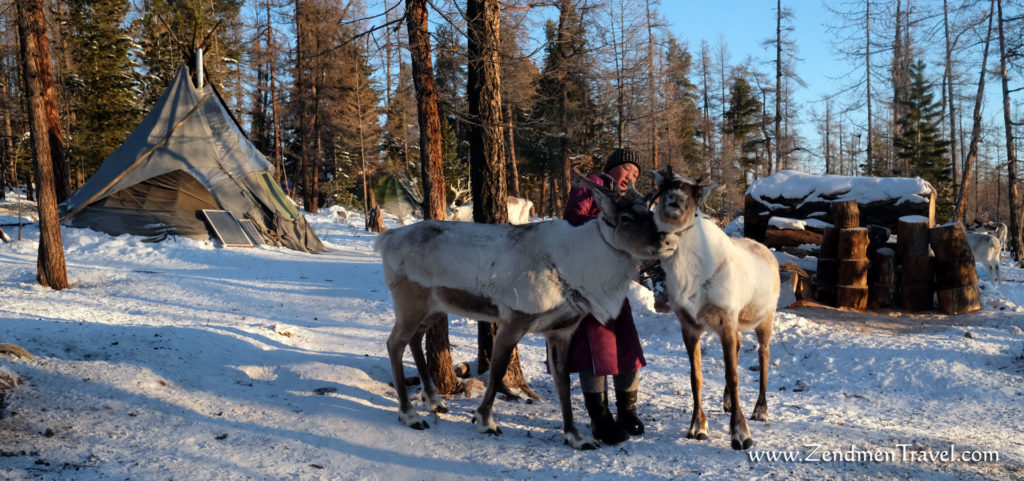
Cultural Significance: Reindeer hold immense cultural significance for the Tsaatan people. They consider the reindeer to be sacred. Reindeer also play a role in their spiritual practices and shamanistic rituals.
|
|
|
|
Shamanism: Shamanism is an integral part of the Tsaatan culture. They believe in the presence of spirits in nature and practice shamanistic rituals to connect with these spirits for healing, protection, and guidance. Shamans play a crucial role in Tsaatan society, acting as spiritual leaders and healers.
|
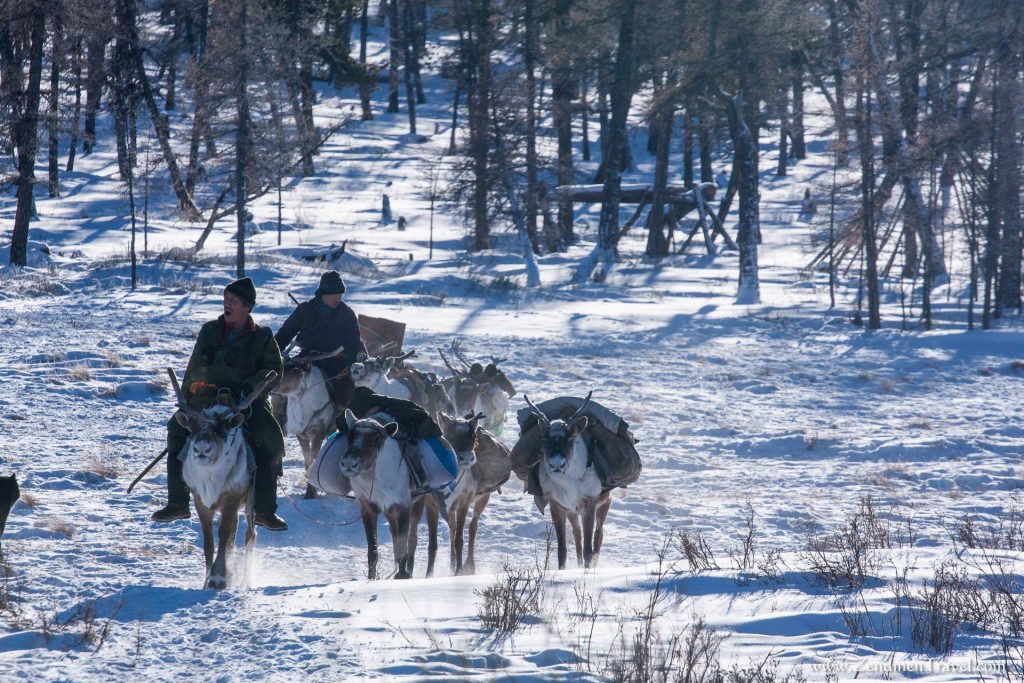
Challenges: The Tsaatan faces numerous challenges, including the encroachment of modernization, climate change, and increased tourism. Climate change has affected their traditional way of life, with warmer temperatures impacting the availability of suitable grazing areas for their reindeer. Increased tourism can disrupt their privacy and pose threats to their environment if not managed responsibly.
|
Visiting the Tsaatan people offers a unique opportunity to witness a way of life that is deeply connected to nature and steeped in ancient traditions. When visiting, it’s crucial to respect their culture, traditions, and natural environment. Working with reputable local tour operators who prioritize responsible and sustainable tourism practices can help ensure a positive and respectful experience.
|
